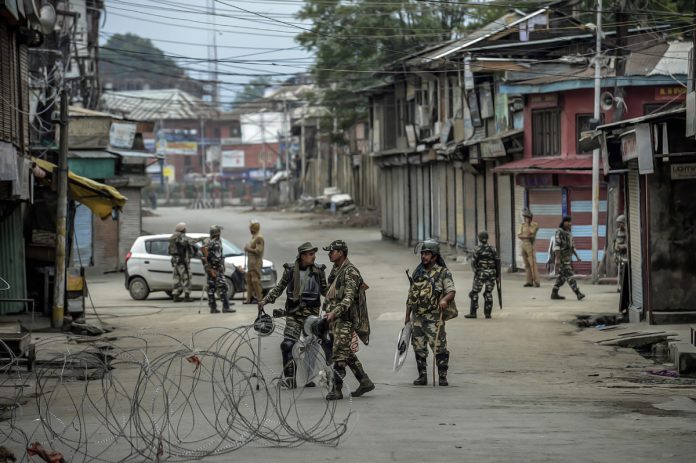Dr. Uzma Shujaat
The above question implies that we already have up-to-date facts and figures to proceed to effectively emanate them when, in fact, depressingly, we have not been keeping ourselves abreast of the events taking place inside IOJK. Our ministries and diplomatic missions abroad have not been maintaining a blog to document the predicament of the battered people of IOJK.
Do we even know precisely how many days it has been since the “constitutional” aggression on IOJK? No, of course not. None of our official portals are running a live counter of days to persistently remind all and sundry that Jammu & Kashmir remains our foundational concern and that without the land of Jammu & Kashmir, the ideological case of Pakistan is incomplete.
What could be the reason for this callousness? This is sheer bureaucratic lethargy and nothing else. Publishing elegantly colored official maps can be useful for ornamental purposes but, surely, it would not solve anything. We will not move an inch on this issue.
How many seminars & workshops did we officially organize in the last five years to keep this issue at the very center of mass communications? The score in this regard is miserable.
Secondly, political mismanagement and maneuverings in Azad Kashmir have given the adversary an opportunity to fan hopelessness and pessimism in the eyes of the people of IOJK. Thirdly, political chaos, a lot of which is engineered, in the rest of Pakistan has been keeping us distracted from the issue of Kashmir. Power struggles within the corridors of power and the blatant use of state institutions and their machinery to prop up politically destructive individuals paint a damning picture of our contemporary politics.
All in all, we are yet to reach a point where we will be justified in advancing to the new stage of our advocacy for the cause of Kashmir and Kashmiris.
Nevertheless, the following are some recommendations that originate from the assumption that we have already reached the abovementioned phase:
- Build a digital archive of all the relevant historical literature on Jammu & Kashmir. All official portals should provide a link, which is bold and eye-catching, to that page.
- Recruit a dedicated team of researchers who assiduously follow Indian mass communications to sift reports on the abuses of the Indian state in the IOJK.
- Direct the diplomatic core stationed in European capitals to organize lectures and workshops on this issue. Moreover, armed with relevant facts and figures, they should also be expected to contribute to Western dailies to familiarize occidental audiences with this more than 75-year-long issue.
- Make full use of digital social media platforms.
- Build collaborations with foreign think tanks as well as channels of communication with national think tanks.
- Speedy mass communications have also enabled a proliferation of fabrications and fake narratives. Our presence on these platforms must ensure that apart from presenting our case we should also debunk and refute false accounts with respect to Jammu & Kashmir.
- Themes related to Kashmiri symbolism (language, culture, history, etc.) should be constantly disseminated from our official audiovisual and diplomatic organs.
- Our missions in Europe should closely engage with our diaspora. Let us not reduce our embassies and consulates to mere travel/tourism facilitation centers.
The cyberspace is filled with occurrences of drug abuse, suicides, and New Delhi’s heavy-handedness in the IOJK. There is no end in sight for the beleaguered people of Jammu & Kashmir. We should’ve left no stone unturned to respond to New Delhi’s unilateral decision.
How did we lose deterrence? Was there any gesture from our side that convinced New Delhi to move to unilateral action in August 2019?
It is hoped that those with responsibility and authority will do a little introspection and bring back the issue of Jammu & Kashmir to the center of our national narrative. Ceremonial utterances may have their importance, however, to resign to that practice would mean a betrayal of our Founding Fathers’ principles; a crime for which future generations will never forgive us.
The author is the Acting Director of Area Study Center for Europe, University of Karachi.







